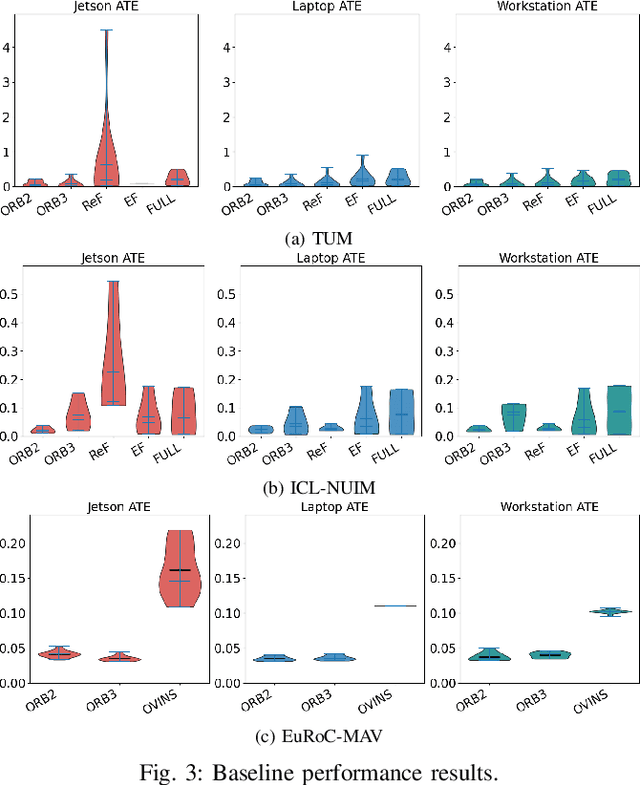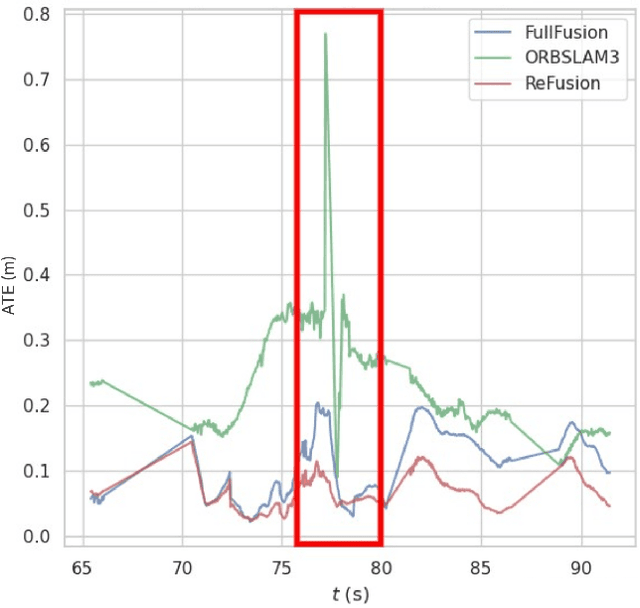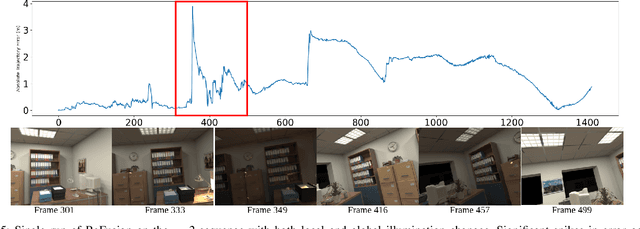Mihai Bujanca
Qualcom Technologies XR Labs, Austria
A Framework for Reproducible Benchmarking and Performance Diagnosis of SLAM Systems
Oct 05, 2024Abstract:We propose SLAMFuse, an open-source SLAM benchmarking framework that provides consistent crossplatform environments for evaluating multi-modal SLAM algorithms, along with tools for data fuzzing, failure detection, and diagnosis across different datasets. Our framework introduces a fuzzing mechanism to test the resilience of SLAM algorithms against dataset perturbations. This enables the assessment of pose estimation accuracy under varying conditions and identifies critical perturbation thresholds. SLAMFuse improves diagnostics with failure detection and analysis tools, examining algorithm behaviour against dataset characteristics. SLAMFuse uses Docker to ensure reproducible testing conditions across diverse datasets and systems by streamlining dependency management. Emphasizing the importance of reproducibility and introducing advanced tools for algorithm evaluation and performance diagnosis, our work sets a new precedent for reliable benchmarking of SLAM systems. We provide ready-to-use docker compatible versions of the algorithms and datasets used in the experiments, together with guidelines for integrating and benchmarking new algorithms. Code is available at https://github.com/nikolaradulov/slamfuse
Robust SLAM Systems: Are We There Yet?
Sep 27, 2021



Abstract:Progress in the last decade has brought about significant improvements in the accuracy and speed of SLAM systems, broadening their mapping capabilities. Despite these advancements, long-term operation remains a major challenge, primarily due to the wide spectrum of perturbations robotic systems may encounter. Increasing the robustness of SLAM algorithms is an ongoing effort, however it usually addresses a specific perturbation. Generalisation of robustness across a large variety of challenging scenarios is not well-studied nor understood. This paper presents a systematic evaluation of the robustness of open-source state-of-the-art SLAM algorithms with respect to challenging conditions such as fast motion, non-uniform illumination, and dynamic scenes. The experiments are performed with perturbations present both independently of each other, as well as in combination in long-term deployment settings in unconstrained environments (lifelong operation).
 Add to Chrome
Add to Chrome Add to Firefox
Add to Firefox Add to Edge
Add to Edge